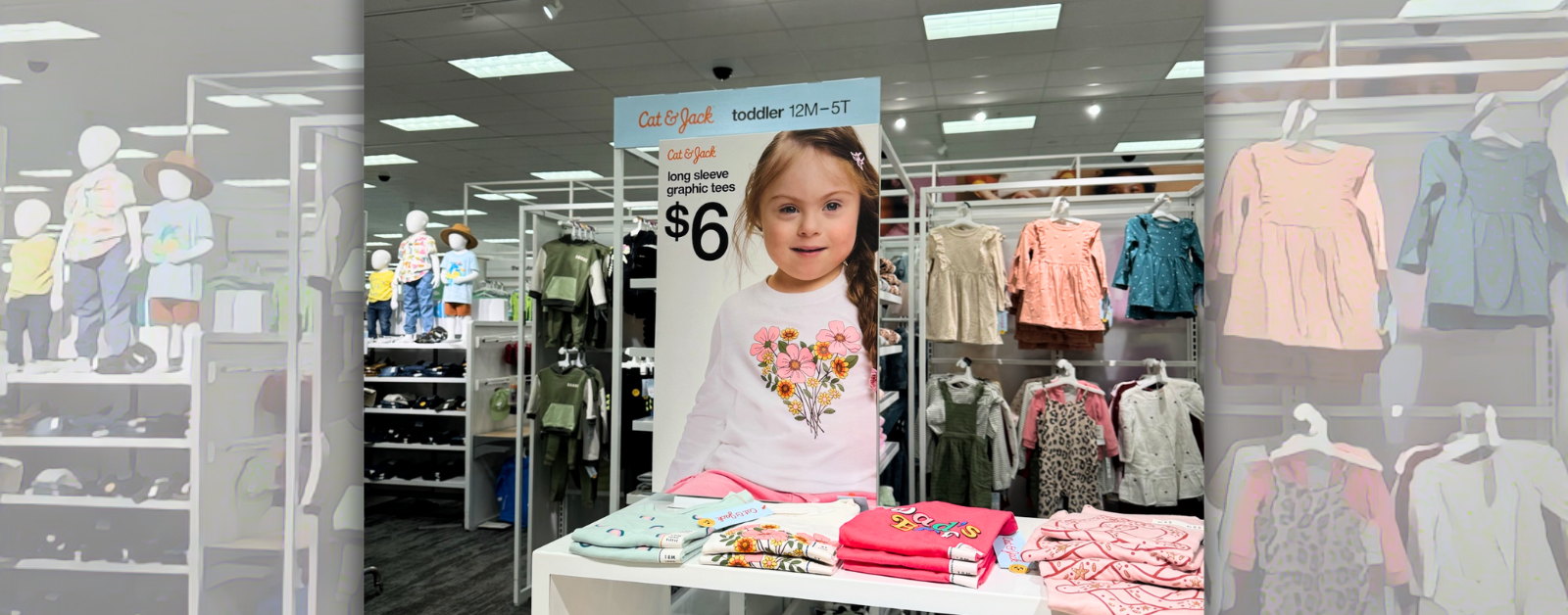The images that I saw of people with Down syndrome when our daughter Penny was born 18 years ago were largely black and white, grainy, medical images. They shaped an imagination for me, and lots of people, about what was possible for people with Down syndrome. These photos implied that people with Down syndrome were sickly and not very interesting, literally not colorful.
Over time, with the advent of social media and with greater acceptance of people with disabilities in our society, we have different images. We get images on Instagram of families who have family members with Down syndrome who are just enjoying their regular everyday lives. We go into a Target and see children with Down syndrome featured in large, Target-branded photos (see below for photos I took on our recent shopping trip), or we got into Sephora and see a large photo ad of a mom with her daughter who has Down syndrome.
What we see begins to shape our imagination about what’s possible. And that’s true not only for families like ours who have children with Down syndrome, but it’s also true for the whole public imagination about what is possible for children and young adults and adults with Down syndrome.
I am grateful that our images of Down syndrome have changed over time, and I hope they play a role in changing our social imagination about what is possible.
View this post on Instagram
A post shared by Amy Julia Becker| Author, Speaker, Podcaster (@amyjuliabecker)
MORE WITH AMY JULIA
- Our Story: Down Syndrome, Identity, and Love
- Gus Walz and the Significance of Belonging
- We can build a culture of belonging — one that includes people with disabilities
Let’s stay in touch. Subscribe to my newsletter to receive regular updates and reflections. Follow me on Facebook, Instagram, and YouTube and subscribe to my Reimagining the Good Life podcast.






